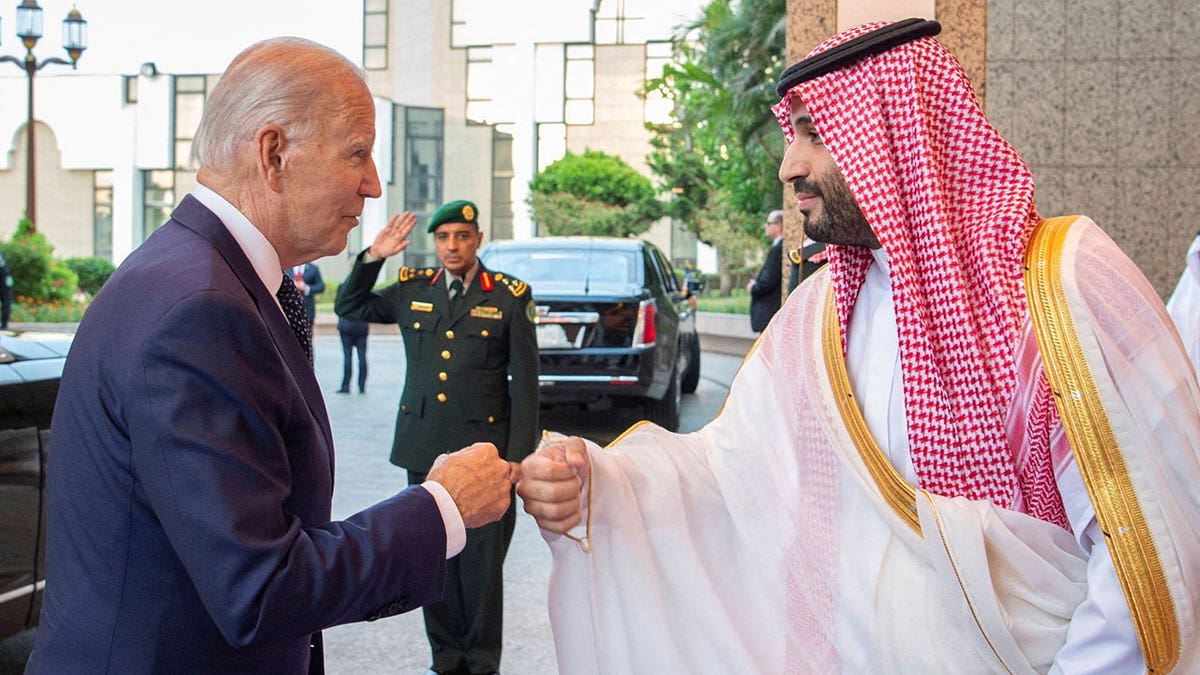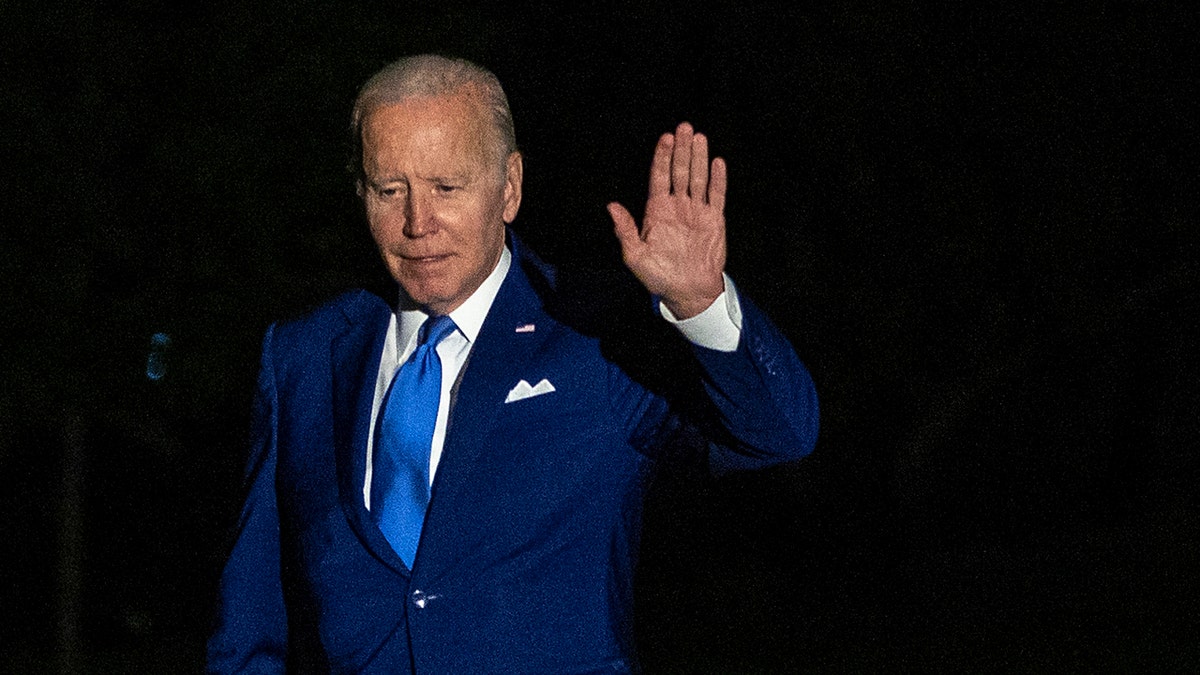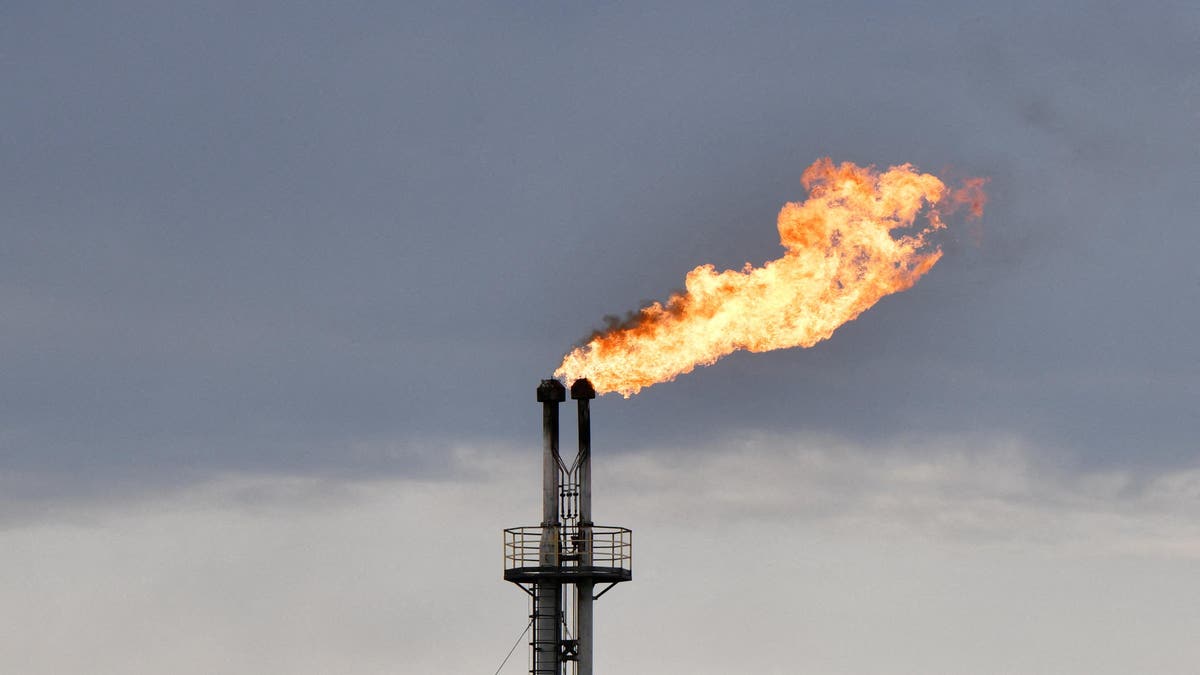What OPEC cuts mean for your gas tank
Clearview energy partners' Kevin Book explains the impact of OPEC's oil cuts on U.S. gas prices on 'Special Report.'
The Washington Post editorial board did not mince words about President Joe Biden’s attempts to persuade the Saudi Arabian government into helping with U.S. energy policy, saying the administration "failed" "badly."
The board claimed that OPEC – heavily influenced by the Saudis – recently slashing "crude oil production by 2 million barrels per day," is a "setback" for Biden agenda, the United States and its allies.
The Saturday editorial stated that OPEC’s decision "is not quite as big of a shock as the embargo OPEC imposed on the United States between October 1973 and March 1974. It is nevertheless a setback for President Biden’s foreign policy and a blow to the United States and its allies on several fronts."
JOE BIDEN HAS HAMPERED DOMESTIC ENERGY INDUSTRY WHILE PLEADING FOR MORE FOREIGN OIL

Saudi Crown Prince Mohammed bin Salman fist bumps U.S. President Joe Biden upon his arrival at Al Salman Palace, in Jeddah, Saudi Arabia. (Reuters)
Further detailing how much damage this decision has done to United States interests – especially during the Russia-Ukraine War – the board added, "The move will not only create economic risks for the United States and Europe but also make it more difficult for them to implement a planned price cap on Russian oil exports in December. All of that can only help Russia pursue its flagging war against Ukraine."
It then laid blame for all this damage squarely at the feet of Biden, saying, "There could be no more troubling evidence of how badly Mr. Biden’s efforts earlier this year to mend fences with the de facto Saudi ruler, Crown Prince Mohammed bin Salman, have failed."
The editorial was referencing the trip Biden made to Saudi Arabia this past summer where he was infamously photographed sharing a "fist bump" with the Saudi prince as they greeted one another.
Earlier this week, a New York Times report on the OPEC oil cut characterized this July meeting as "fist bump diplomacy" and claimed it was a "failure" as well.
The Washington Post editorial expressed just how much Biden’s trip did not help. It stated, "Not only has MBS, as he is known, refused to raise oil production, as Mr. Biden wanted. He appears to be doubling down on hostility toward the president, in retaliation for the latter’s — accurate — depiction of him as the author of Post contributor Jamal Khashoggi’s murder and other human rights violations that make MBS worthy of ‘pariah’ status."
BIDEN INVOKES POSSIBILITY OF 'ARMAGEDDON' IN DEMOCRATIC FUNDRAISER SPEECH

WASHINGTON, DC - JULY 16: President Joe Biden walks off Marine One on the South Lawn of the White House on July 16, 2022 in Washington, DC. President Biden just returned from visiting Jeddah, Saudi Arabia where he met with Crown Prince Mohammed bin Salman, known as MBS, and met with the Israeli leader earlier in the week. (Photo by Tasos Katopodis/Getty Images)
The piece noted the situation tightens the screws on Biden’s political favorability ahead of the midterm elections. It said, "Announced just a month before a crucial midterm election in which Republicans are blaming Mr. Biden for high U.S. gas prices, the crown prince is effectively joining hands with Russian President Vladimir Putin to drive those prices, which had been falling, back up."
The editorial board opined that MBS’ move "looks for all the world like an attempt by MBS to influence internal U.S. politics, to the advantage of the party of former president Donald Trump, who dealt warmly with him."
The Post advised that the "United States cannot yield to this kind of pressure," and should "press ahead with the plan for a price cap on Russian oil, appropriately adjusted to account for the OPEC Plus production cut."
Though it warned that "Congress and the Biden administration should avoid any action, in the heat of an election campaign, that might make matters worse."
CLICK HERE TO GET THE FOX NEWS APP

OPEC recently announced its decision to dramatically cut its oil production. (REUTERS/Alexander Manzyuk//File Photo)





















